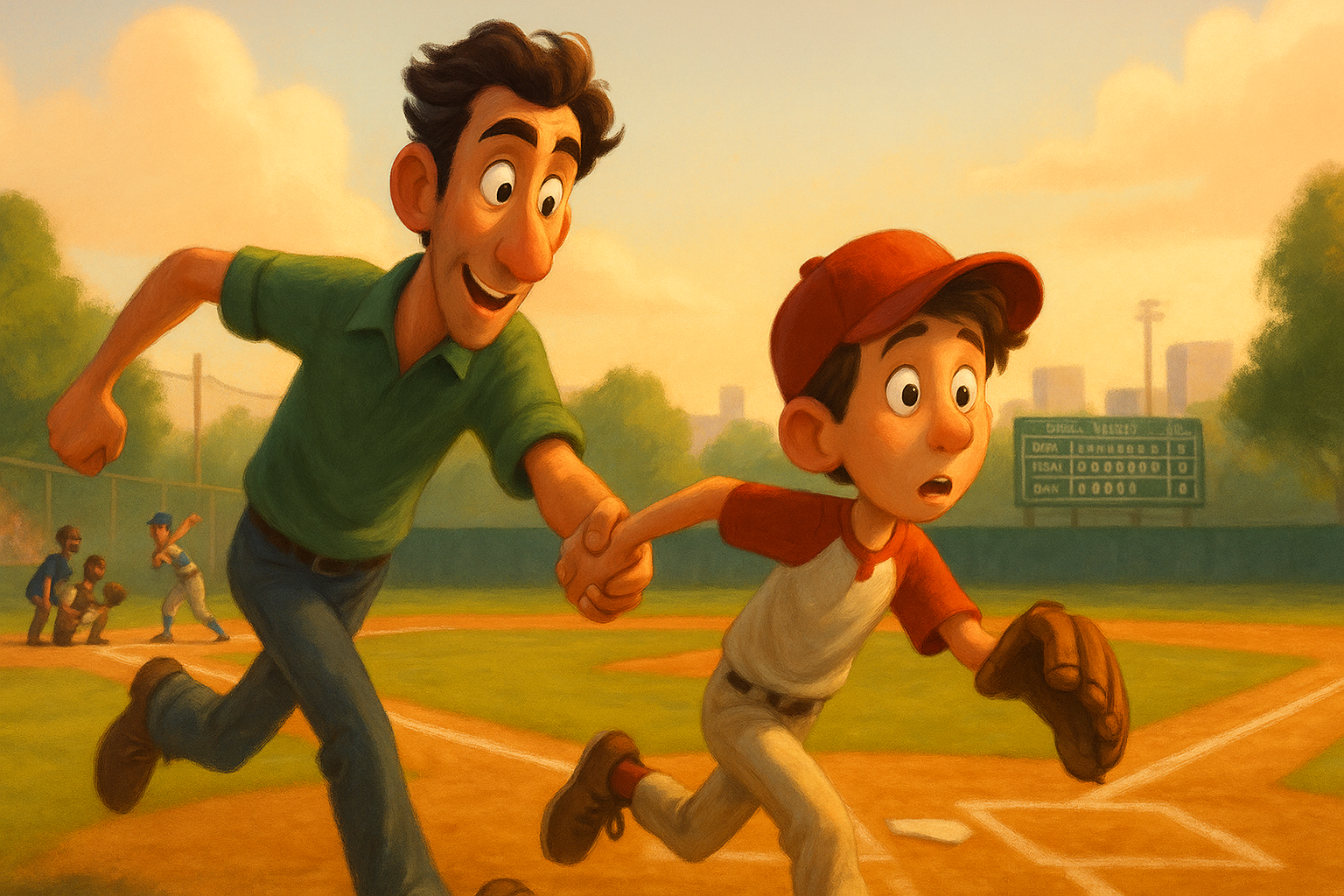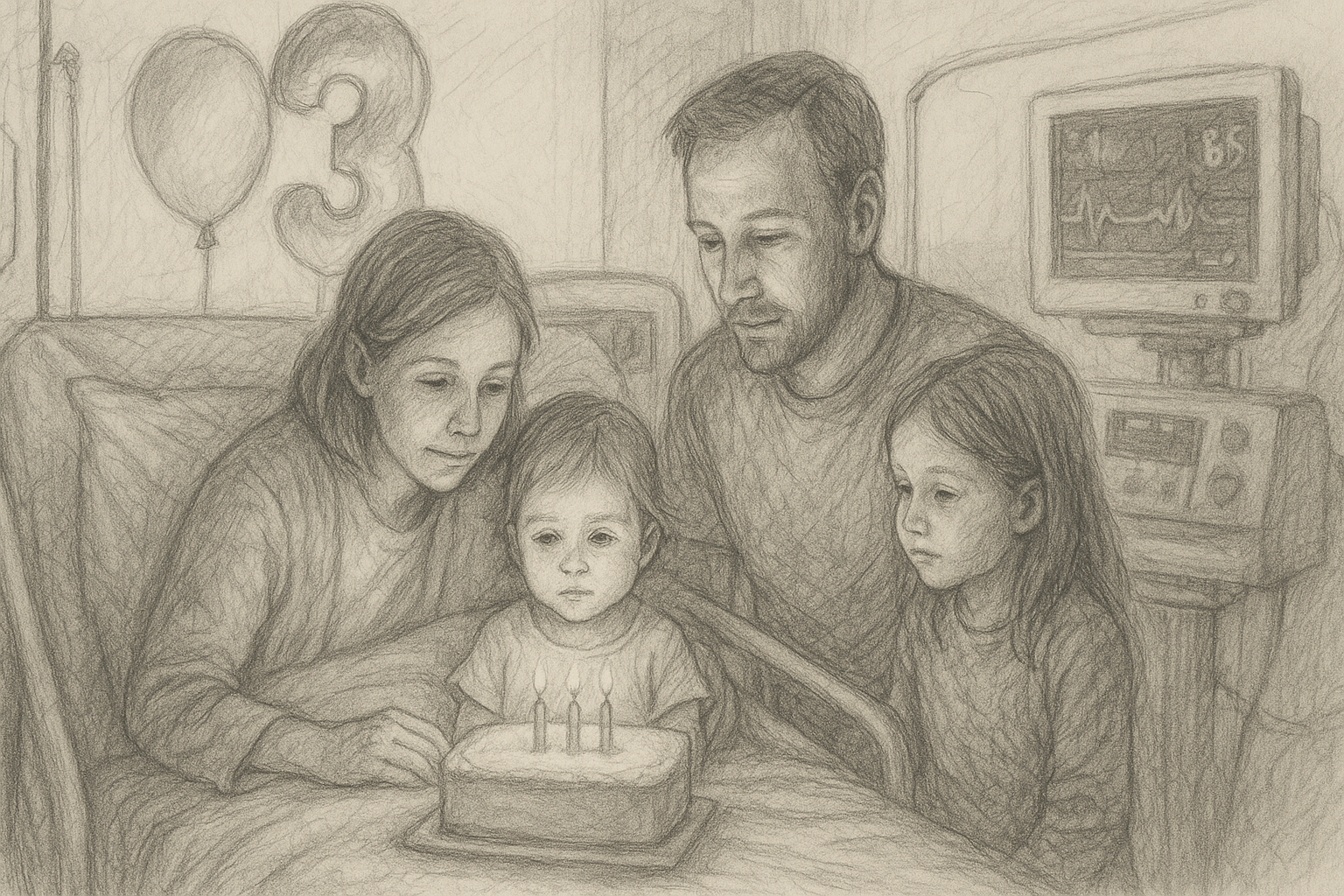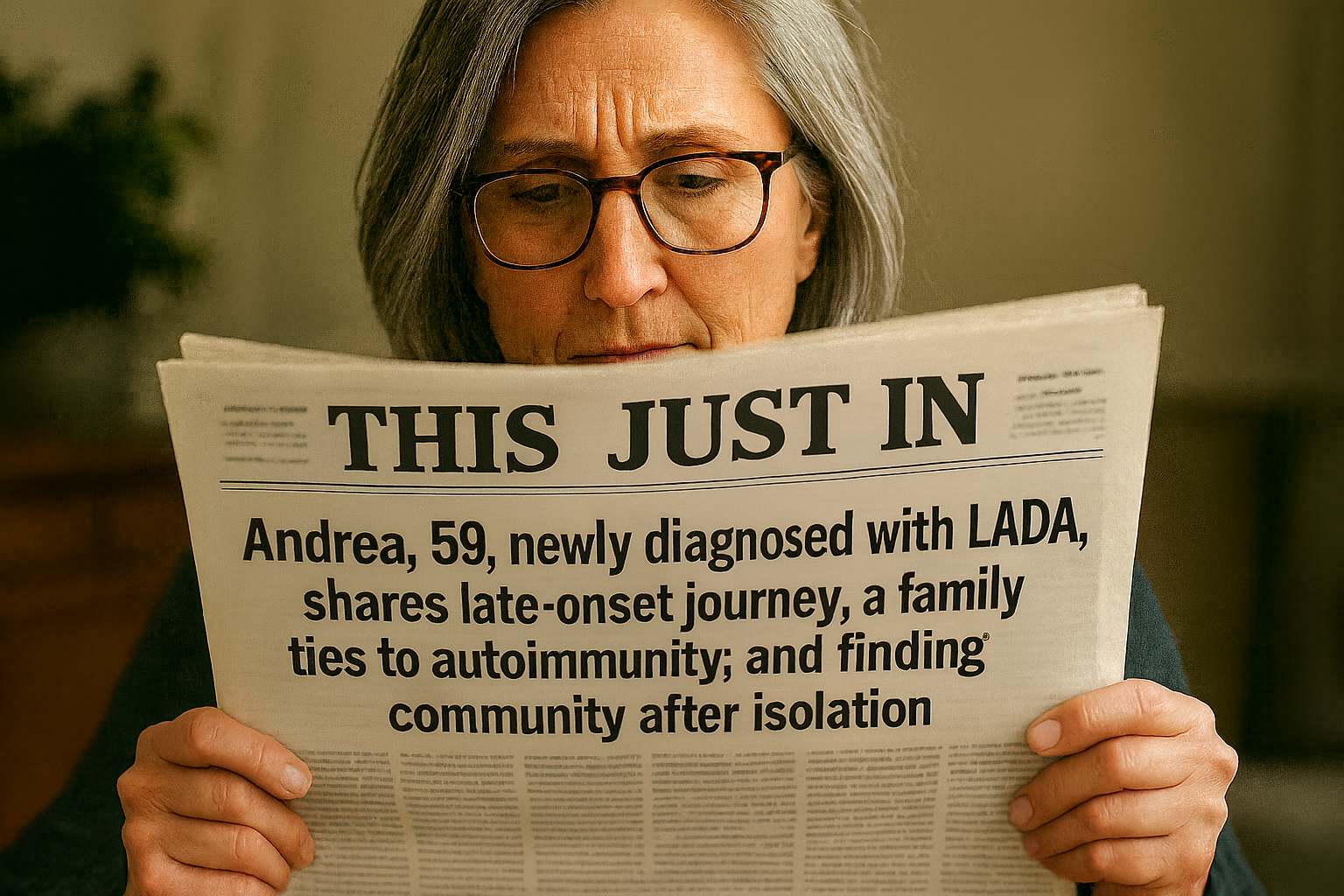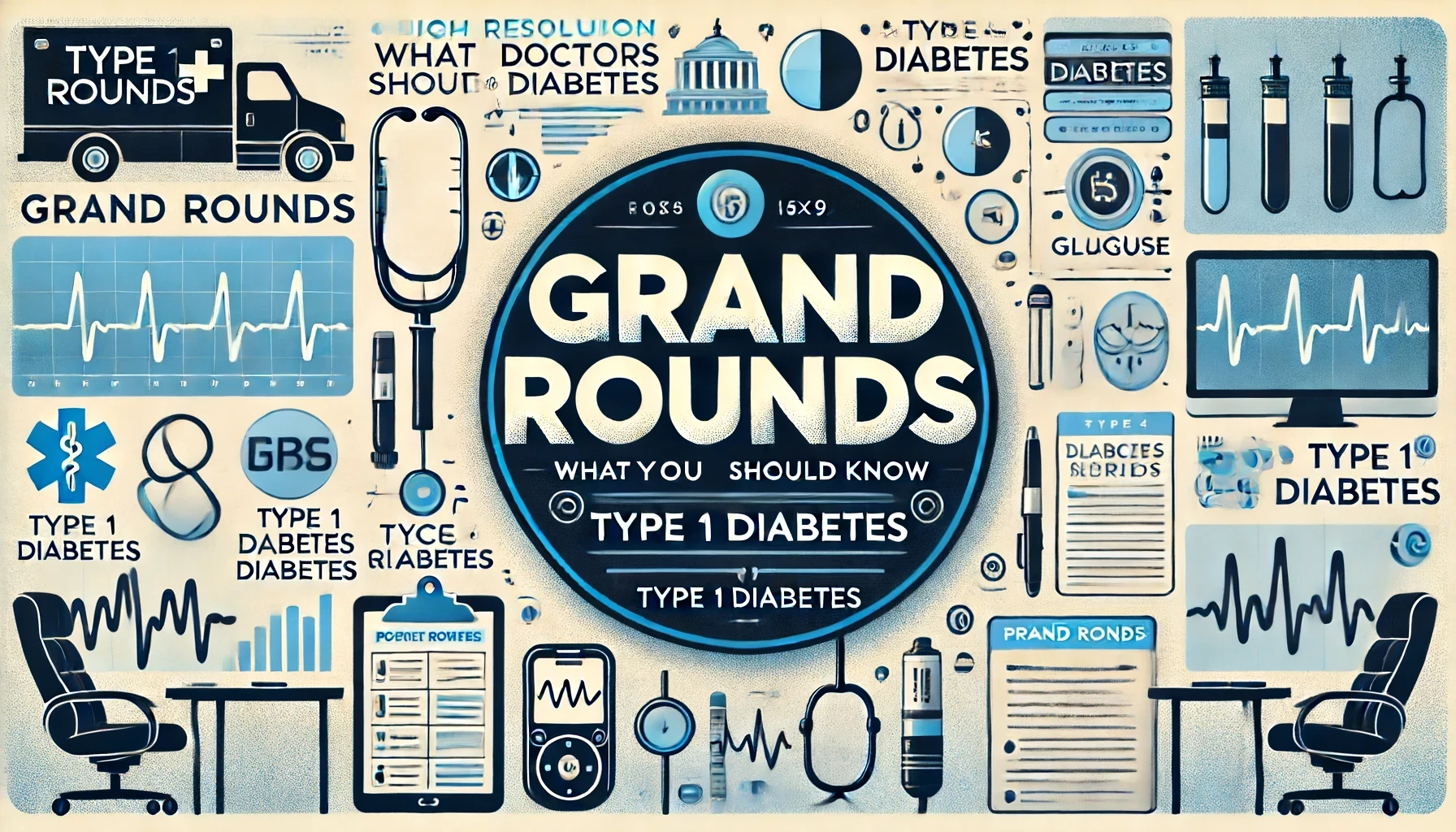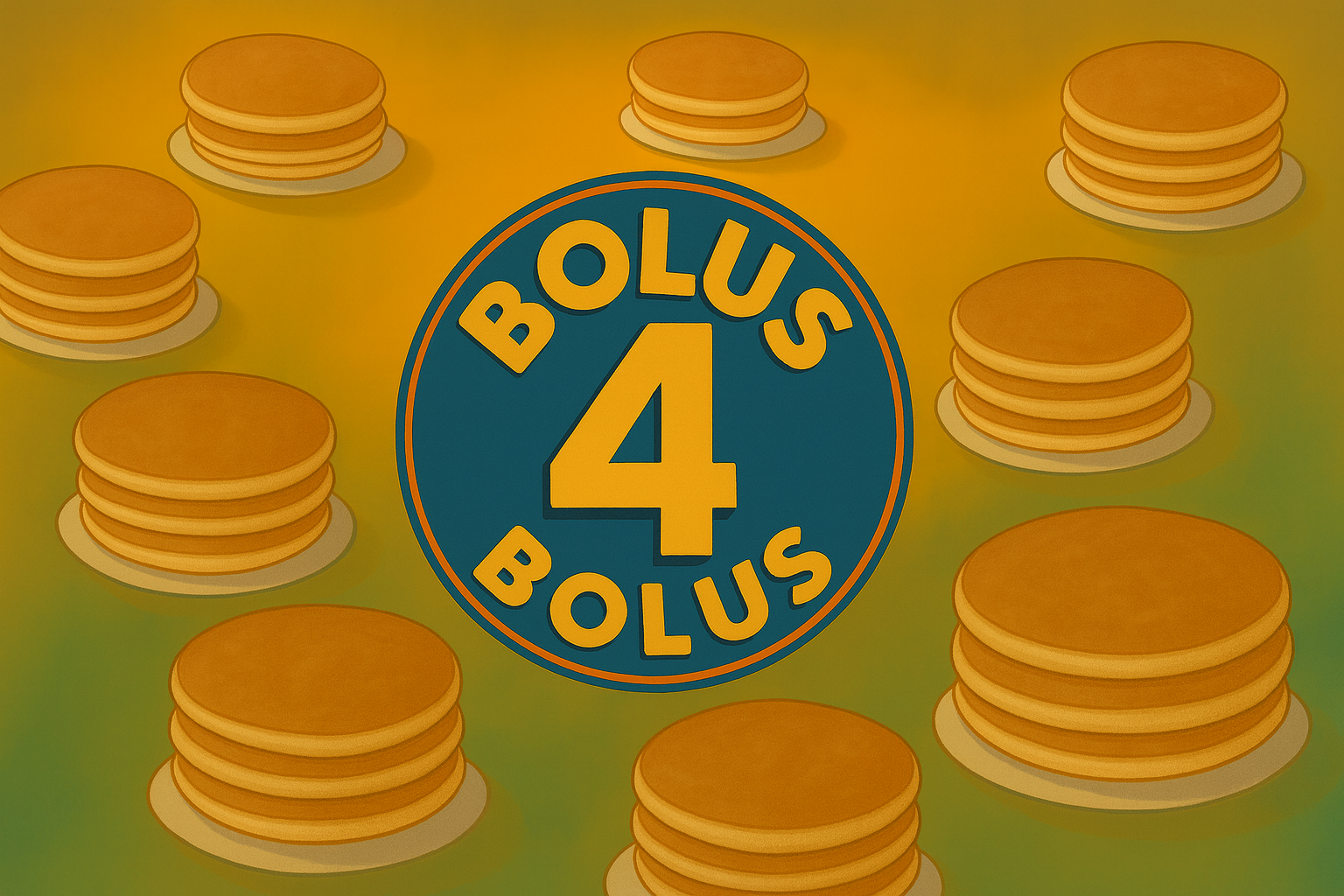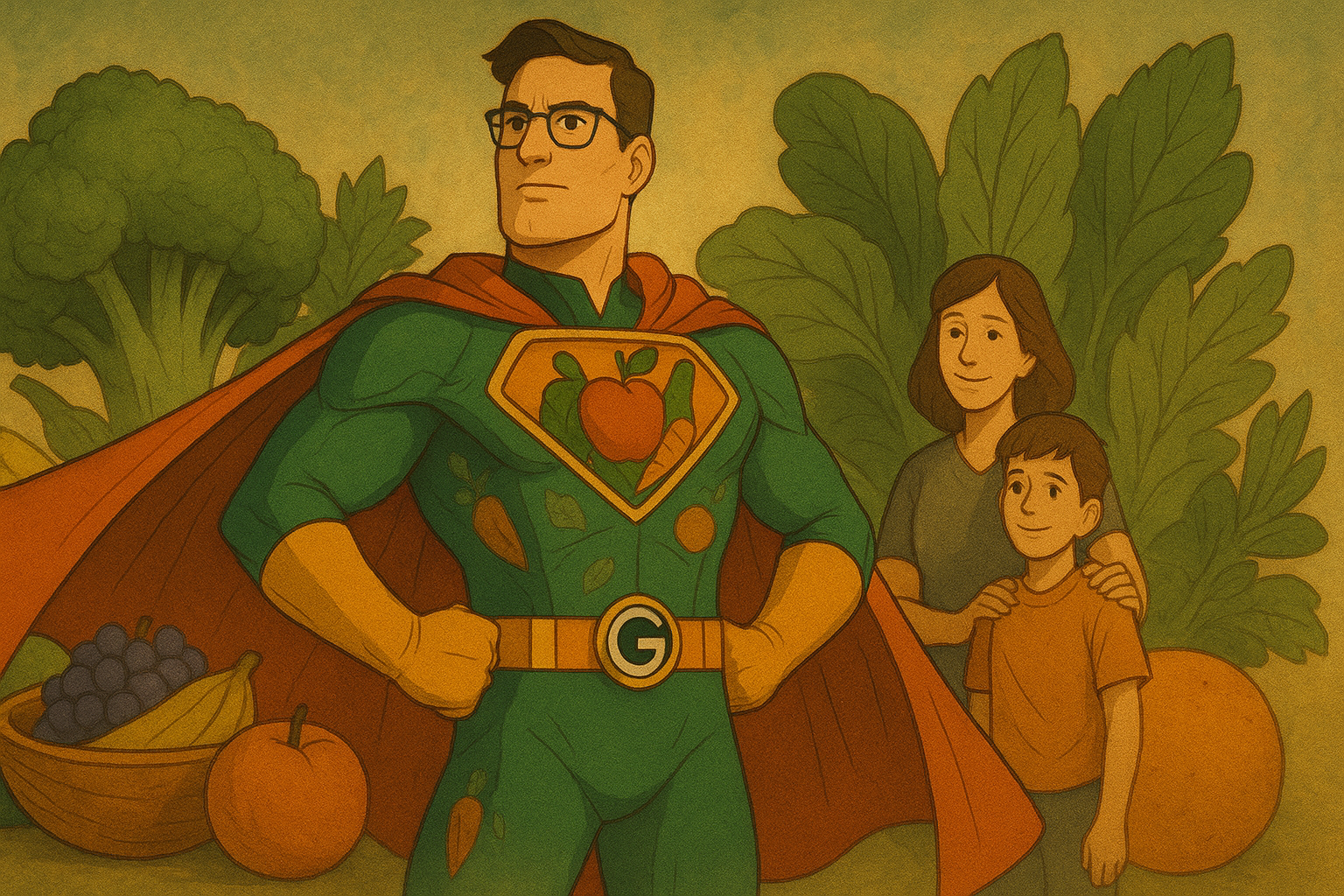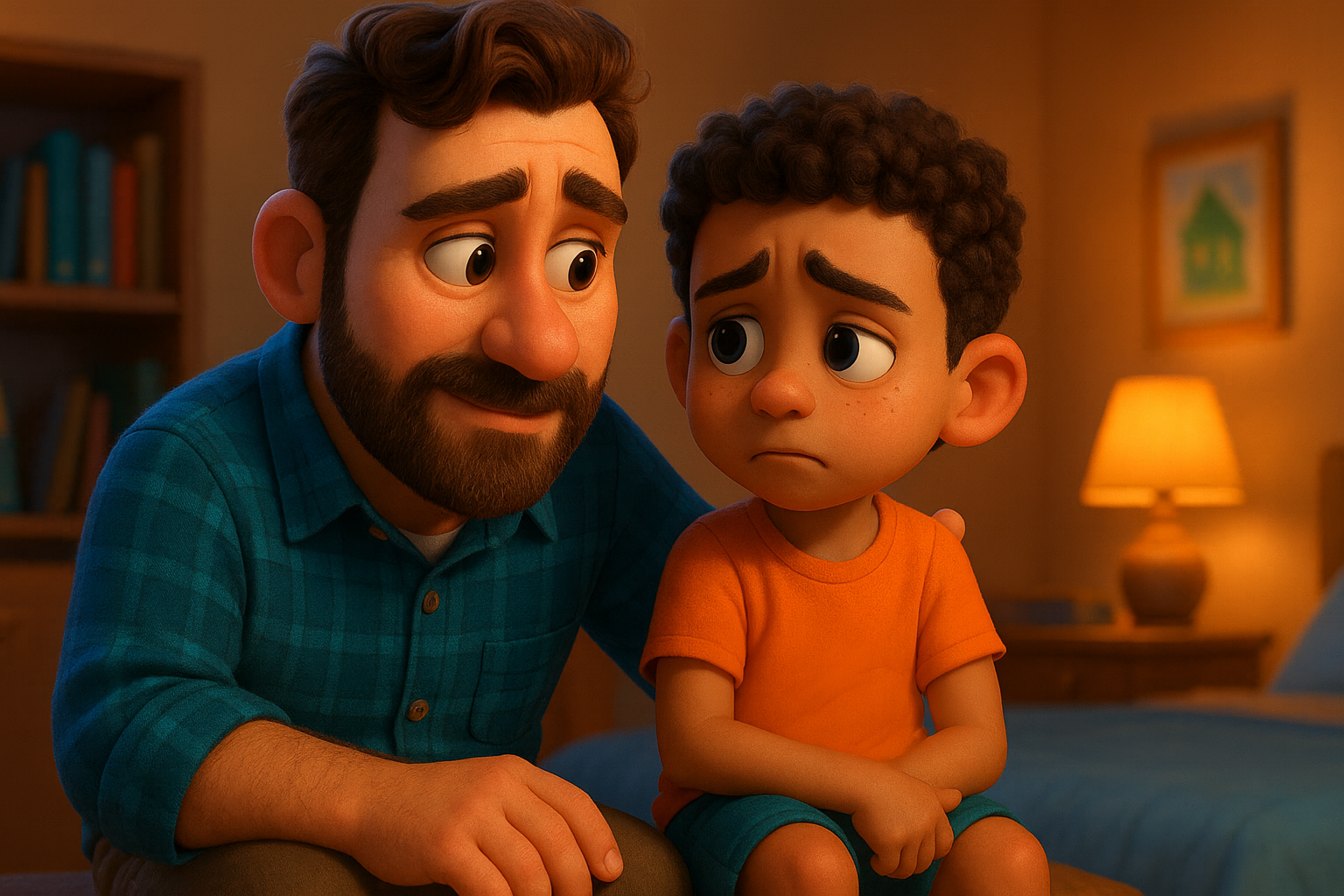#1641 Lyla's Story
You can always listen to the Juicebox Podcast here but the cool kids use: Apple Podcasts/iOS - Spotify - Amazon Music - Google Play/Android - iHeart Radio - Radio Public, Amazon Alexa or wherever they get audio.
Trigger Warning: John is here to tell us about his daughter, Lyla, who was recently lost to undiagnosed T1D. If you're not prepared to deal with the emotions that are going to come with a raw and honest conversation about losing a child, please consider skipping this episode.
UK Petition: https://petition.parliament.uk/petitions/728677
+ Click for EPISODE TRANSCRIPT
DISCLAIMER: This text is the output of AI based transcribing from an audio recording. Although the transcription is largely accurate, in some cases it is incomplete or inaccurate due to inaudible passages or transcription errors and should not be treated as an authoritative record. Nothing that you read here constitutes advice medical or otherwise. Always consult with a healthcare professional before making changes to a healthcare plan.
Scott Benner 0:00
John's story is today's guest. He's here to tell us about his daughter, Lila, who was recently lost to undiagnosed type one diabetes. John will share stories about Lila and his desire for this not to happen to someone else's child, if you're not prepared to deal with the emotions that are going to come with a raw and honest conversation about losing a child, please consider skipping this episode
while you're listening. Please remember that nothing you hear on the Juicebox podcast should be considered advice medical or otherwise, always consult a physician before making any changes to your healthcare plan or becoming bold with insulin. If you're a citizen of the United Kingdom, please consider signing John's petition for funding so all infants are offered type one diabetes testing in routine care. I'll have a link in the show notes and a link at Juicebox podcast.com if you're interested in learning more and adding your signature.
Today's episode is sponsored by Medtronic diabetes and the contour next gen blood glucose meter. Learn more about Medtronic devices at Medtronic diabetes.com/juicebox and dig into all the contour has to offer at contour, next.com/juicebox
Speaker 1 1:41
you Hi,
Scott Benner 1:53
Scott.
John Story 1:54
My name is John story, I'm from Kingston upon hull in England, in Yorkshire, and I am the father of Lila's story,
Scott Benner 2:02
John, it's nice to meet you. I really do appreciate you doing this with me. Thank you. Yeah, that's right. So it's a pleasure to have you here. I'm sorry. I think we're going to probably just jump right in any other small talk will, I think seem trivial very quickly. Why don't you tell me why you're here and what led you to this place? Right?
John Story 2:21
Well, the reason I'm here today and again, thank you for having me on the pod. Like I said, I've heard good things about you. Thank you and the Juicebox podcast and you know, we send our love from across the pond, but basically, the reason I'm on here today is to discuss Lila, our beautiful daughter. I do apologize if I get emotional during the pod, because it is still quite raw. So you might want to come with a trigger warning.
Scott Benner 2:45
Listen, I'm going to cry if you cry. John, just so you know. So how long ago did all this happen? Well, basically,
John Story 2:54
let me tell you about Lila first. I think it's, I think it's important to let people know. Sort of person Lila was born on the 11th of April 2023 a day before my birthday and a day after her Auntie's birthday. She was lovely, beautiful. She was very advanced. She could count well into her 20s. At the age of two, she was stringing sentences together. She was kind, caring, sharing. She loved all creatures, even the creepy crawlies like spiders and things like that. She loved flowers, sunflowers, pink and yellow roses. And she got all the caring and compassionate side from her mother, my lovely wife, Emma. But she also had a sassy side to her too. She was very independent. She was very good at sussing people out, you know, checking them over before she, you know, let them in, sort of thing. And she had a I don't give a sh 1t attitude she got, definitely got that off her father. She was, she was adorable, and, you know, she,
Scott Benner 4:05
she wouldn't hurt a fly. Lila turned to, obviously, in April this year,
John Story 4:14
and in the last week of April, going into May. And so from the 28th of April, we in the in the night, we noticed that Lila had woke up in the middle of the night, and she was, she was a bit rosy cheeked, you know, and Emma checked her over, and it seemed apparent that she was getting her back teeth coming through. That's why she was a bit sniffly and a bit rosy cheek. So we gave her a bit of, don't know how what you guys have in America, but over here, we call it Cal Poly, which seems to be the answer to everything. It's like a children a baby's children's paracetamol. So give her a bit of Cal Poly, and she fell back asleep again. She woke up on a Tuesday, right as rain. Had some breakfast. And went to nursery. And she'd only started nursery, or kindergarten, as you guys call it, on the 22nd of April. She went to nursery. She was absolutely fine. Came home again, fine, went to bed, went to sleep, gets up on the Wednesday, again, she's fine. When she came home, we noticed that she started having a few more wet nappies or diapers, and when she was sat with me, I noticed at one point that a nappy had burst. I thought that's unusual.
Scott Benner 5:37
She's weeing quite a lot. We
John Story 5:39
get to the fair and she looked, she looks quite tired, so we had on the side of caution, and thought, right, well, if she's like this, in the morning, we will take her into nursery, and you know, if she hasn't improved, we'll, we'll call the doctor, basically, right? She gets up on the Thursday, she gets up. She didn't really want anything solid to eat. And we thought, well, that's okay, because she's with she's teething and all the rest of it. So she had some yogurt and a bit of fruit, went off to nursery, okay, and seemed fine when she got dropped off at the nursery. And unbeknownst to me, my mum came home, because my mum used to pick Lila up from nursery and our son Jack. Our son, Jack's only four himself, and he's just started preschool. And my mum brought around the corner, and we always used to greet Jack and Lila as they came around the door with her. Ah, yeah. How you you know? Hi. How are you doing? You know. And then they both look at me and run straight to the mum and Lila came around the door, and I have to say, Scott, I was frightened. I saw her, and she'd lost weight, she'd look gone. And I was like, Nah, I won't swear, but I said, you know, said to Emma, and my mom said, Something effing wrong with her,
Scott Benner 6:59
and I'm the the biggest kind of
John Story 7:04
scaredy cat when it comes to my children. You know, ordinarily, if they bump the head or the trap the finger in a in a door, like, you know, like little kids do, I'd scream and go get that kid to hospital now, but for some reason, I just said, ring the doctor. She needs to get to doctors. We secured her an appointment for the following day. I have to be careful what to say, because she's got an inquest coming up on the 16th of September. But I know my mother and my wife took Lila to the doctors, and they explained the symptoms. She threw up three times that morning, you know, vomited three times, and the third time was in, actually, in the surgery. And my mother pointed out that's the third time today she's been sick. So obviously, Emma and my mum went in with Lily to the doctors, explained that she's having more wet nappies. She's been lethargic. She's not been a normal self. Obviously, she's vomiting. She hasn't had a bowel movement since the Tuesday, Tuesday night, and she appears to have lost weight overnight. And she's she's drinking a lot more. She's and my mother interjected and said she's actually asking for water. Now, what two year old asked for water. It's all about juice, innit. Now, I've had it drummed into me over the years say, don't look at Dr Google. Don't look at Dr Google. You know, I wish I did, because the doctor just checked the vitals and surmised that all she had was tonsillitis. We brought her home, Emma took her to bed quite early, but we made we made a decision that Emma would stay in bed with Lila in our bed, and I said, That's okay. I'll sleep downstairs on my recliner chair periodically as I carried her up to bed. Oh, that's another thing I forgot to mention. She stopped talking on the Thursday. Now I thought I was frightened to death at the time that she'd all of a sudden gone from somebody so bright and vibrant to someone that's gone completely non verbal. When we got told she had tonsillitis, it kind of changed our perceptions of care for Lila, because the doctor said if, if she hadn't got better within 24 hours, then call 111, which is like the quieter version of 999, or 911 you know, it's like ringing up. I've just got a concern, you know. So okay, and then they give you advice accordingly. We were relieved that we you knew it was translated, and she was prescribed something called amoxicillin, which is basically penicillin for kids. It's like that banana flavored stuff you get. We started giving her that, and then said, carry on giving her children's paracetamol. Obviously, what's, what's in children's what's children's paracetamol, full of sugar. I started carrying her up to bed. And. She started shouting, mummy, mummy, mummy. We thought, we thought, excellent. She's talking. She's talking again. She's, you know, she's articulating again. That's brilliant. Went to bed. I last checked on Emma and Lila at about 8pm and Lila was sleep. While Lila was sleeping, she was making a little arring noise, and again, we attributed that to the fact that she's articulating that the tonsils are hurting, but no more of it. Emma checked on her again at 10 o'clock, still breathing, still temp. Last checked on her at quarter two in the morning, still breathing, still temper. Up. I wake up about quarter four come to bed. About quarter past four in the morning,
Scott Benner 10:45
I got into the bed.
John Story 10:48
I moved later because she was like before she was sleeping in a horizontal position. I moved her from my nappy.
Scott Benner 10:54
For some reason, I lay in bed, and
John Story 10:59
next thing I know, I felt something cold against me, and I thought it was Lila's
Scott Benner 11:04
milk bottle, but
John Story 11:07
it wasn't. It was her arm, and she was freezing. She'd already gone. So I think in that three quarters of an hour where, three quarters of an hour where Emma had last checked on her, I think she'd slipped into a coma, and just passed. Even our dog was in the room. We got a border we got a border collie. We know if Lila would have suffered at any point, the dog would have been leaping on the bed, jumping all over Emma to get her up, you know.
Scott Benner 11:30
And, yeah, she just literally passed in very quickly, yeah. So, you know, we, John, take us. Take a second. It's okay. You can collect yourself. It's fine. I want you to know that when, when someone reached out to me to have you on I had no idea this was also fresh in your life. I really didn't. Are we talking about five months ago?
John Story 11:57
Just over four months now, four months ago? Okay, yeah, yeah, she she passed away on Third of May. We even said when was at the hospital, because whilst I was trying to resuscitate her, we even said, you know, when she was officially pronounced, asked how, when we when my wife and my mother went to the GPS and said she's got this, this, this, and this, did she only surmise it was tonsillitis, yeah.
Scott Benner 12:30
And obviously, that's what, that's basically what happened. Naturally, we're devastated. But Hey, John, this is more common than you think. I know that obviously type one diabetes is not a thing you were aware of prior to that. Absolutely not, yeah, but I can tell you that misdiagnosis is at this point are fairly common, and even the things that you describe that you saw, but you know, didn't know what to make of it. All that is incredibly common. I know that's I don't believe anything I'm going to say to you is going to be comforting. But no, no, yeah, but I can tell you that. You know, my daughter was diagnosed when she was two, and, yeah, just after her second birthday. As a matter of fact, my wife and I saw signs, and, you know, we look stared at her for a long time, too, weight loss, wetting her diapers. She's like, voraciously hungry, but not going to the bathroom, like anything you probably experienced with your dear Lila. I imagine I experienced with my daughter, and my wife did too, and we just happened to have a moment where it just struck us that we thought it was diabetes that was really it. Yeah, we didn't know either. And took her to the hospital, and they told us this, that, you know, she was very probably 24 hours away from where your daughter was, and to later say that I did something right or you did something wrong is ridiculous. We got lucky and you didn't.
John Story 14:11
We were, you know, yeah, that's, that's part of the, one of the things that resonated with when I first heard about you, and the reason that you set up the podcast was because Lila was three weeks into a second birthday. And yeah, and I just, I can't believe how people just don't actively listen anymore when you display and there's so many stories of you're an overprotective mother, or you can't have diabetes because you're fit or you're well, or you can't because there's no history in the family. That's, I mean, that irrelevant question that GPS ask, is there a history of diabetes in the family? Well, 80% of newly diagnosed people with type one diabetes are. Babies to it themselves. You know, it's just one of them things. It's you ever get it or you don't, you know? I mean, it can run in families, obviously, but 80% of new cases are like that. And what happened, Scott was in the aftermath of flyers passing, you know, I said, I'm, I'm gonna sorry. I said I'm gonna fight for every Barber of my being to for change, because all of a sudden it got so strange online, on Facebook and things like that, it almost became like a me too. Thing people was reaching out and saying, Look, same thing that happened to us. And the only difference between you and my daughter or my son was when I woke up in the morning, my child was barely breathing.
Scott Benner 15:42
Yours just, yeah, it just happened faster or bad time, even just that you were asleep. I mean, John, there's, there's no way to make sense of it. Really, it's
John Story 15:53
well with with Lila as well she got, we found out on the interim death certificate that not only did she have undiagnosed type one, and obviously she died of diabetic ketoacidosis, but she had a gastrointestinal bleed and covid 19. So we think what's happened is that sniffle that she had on the Monday and the rosy cheeks, we think that was the start of covid. And what's happened, we think, is it's attack to pancreas, because you know what covid can do. It can attack any part of your body. You can get cases of people getting covered, and it just doesn't touch the sides. And you're like, what's this? But then you can get one case of covid, and you can just attack the wrong part of you. And then it's critical. So with Lila, it happened so rapidly. But the people that have been reaching out to me, this is just from people in the United Kingdom. I've had about 220 emails so far. Of them, 220 emails. Only two have been diagnosed the initial point of contact with the GP. The rest have been diagnosed in critical care.
Scott Benner 16:59
Yeah, that's pretty much how it works. And there's, you know, there's, it's, it's such a tough thing to talk about, because as you're sitting here, probably all you can think about is somebody would have just checked her blood sugar in the office. You would have known days before, and they would have very likely been able to help her. And you're going to hear people make the counter argument, which is, you know, for every kid that comes in in your daughter's situation, there's probably 1000 of them that don't have diabetes. And then, yeah, yeah, and it's not of any comfort to you or or any reason not to do that finger stick and help the few that are in that situation. I've, you know, had this conversation over and over again with people over the years, and I can see both sides of why it happens and why it why it doesn't happen, or why it should happen and why it doesn't happen. Yeah, I can't tell you how sorry. I mean, honestly, all I can think about sitting here is giving my daughter a hug when she gets home, you know? And, yeah, even that feels terrible to say out loud right now while I'm speaking to you, today's episode is sponsored by Medtronic diabetes, who is making life with diabetes easier with the mini med 780 G system. The mini med 780 G automated insulin delivery system, anticipates, adjusts and corrects every five minutes. Real world results show people achieving up to 80% time and range with recommended settings, without increasing lows. But of course, Individual results may vary. The 780 G works around the clock, so you can focus on what matters. Have you heard about Medtronic extended infusion set? It's the first and only infusion set labeled for up to a seven day wear. This feature is repeatedly asked for, and Medtronic has delivered. 97% of people using the 780 G reported that they could manage their diabetes without major disruptions of sleep. They felt more free to eat what they wanted, and they felt less stress with fewer alarms and alerts you can't beat that. Learn more about how you can spend less time and effort managing your diabetes by visiting Medtronic diabetes.com/juicebox the contour next gen blood glucose meter is sponsoring this episode of The Juicebox podcast, and it's entirely possible that it is less expensive in cash than you're paying right now for your meter through your Insurance Company. That's right. If you go to my link, contour next.com/juicebox you're going to find links to Walmart, Amazon, Walgreens, CVS, Rite, aid, Kroger and Meijer. You could be paying more right now through your insurance for your test strips and meter. Then you would pay through my link for the contour next gen and contour next test strips in cash. What am I saying? My link may be cheaper out of your pocket than you're paying right now, even with your insurance. And I don't know what meter you have right now. I can't say that, but what I can say for sure is that the contour next gen meter. Meter is accurate. It is reliable, and it is the meter that we've been using for years. Contour next.com/juicebox, and if you already have a contour meter and you're buying test strips, doing so through the Juicebox podcast link will help to support the show
John Story 20:16
now, Scott, I've been saying I've been saying that to people every time I've had an email come through it the so the emails that I get sent us are so traumatic for themselves, and they're incredibly brave for writing to me, you know. And you know, I keep asking people just just send them, because change needs to happen. And I do say to them, just give your daughter or your son a massive cuddle from us, you know,
Scott Benner 20:39
I agree, a little finger prick cost pennies.
John Story 20:47
Getting diagnosed in critical care costs hundreds of 1000s, you know, to the National Health Service. God knows what it's like in your country where your insurance system and everything you know how much I mean. I mean money costs nothing. Money means nothing when you saving your child, obviously. But I think what the UK government don't understand all the NHS don't understand is, you know, if you do this little finger prick test and you get, you get people out there that say, well, it's traumatic to the child. Give over. Don't be silly. You know, give them a lollipop afterwards. You know, they'll be, you know that they'll be absolutely fine. It's, it's, you know, you get, you get your your jabs when you're a baby that makes them cry. What difference does it make? Just a little finger prick. Not that anybody wants type one diabetes, obviously. But the earlier someone gets diagnosed, the easier it is for that person to manage the condition safely. You know, if you diagnose a DKA, it can be, it can be much more difficult to manage your blood glucose levels, and not only that, it can cause organ failure, developmental delay. I mean, I'm a rehab officer for visually impaired people, so basically, I help restore the skills of people with visual impairment, and obviously one of them conditions is like diabetic retinopathy or maculopathy, people don't understand how serious it is. And it's not just a physical impact it has on people, the patient themselves, but it's the emotional impact
Scott Benner 22:19
of going through on the
John Story 22:20
person and and the family is the ripple effect it causes, and the parental guilt, it's horrible,
Scott Benner 22:28
right? Yet, no, there's, there's no argument for not knowing sooner. Knowing sooner is just always going to be better. So John, if we can, I don't know if we're really pivoting, but, but to to leave her story there for a second, and we'll come back to it. And what you're trying to accomplish. Would you mind if I asked you some stuff personally, I'm I'm interested to know. I mean, you're a pretty young family, right? You had a four year old and a two year old. How long have you been married? How old are you? How old is your wife? Funny story, just I'm late. Really strange.
John Story 23:00
Actually, I'm Emma on a dating app called Bumble. I don't know if you've heard of it, I have. We first met, we went for a coffee on our first date. We got chat in we we really enjoyed each other's company on the way up the coffee house, I said to Emma, do you mind, you know, do you mind if I see you again? And she said, yeah, yeah, I'd love to. So don't you mind if I give you a kiss, you know, on the cheek, a little peck on the cheek, sort of things went, Yeah, okay. And at that point, I slipped on the doorstep. I fell forward, and I had butted. I thought, There's no way she's No way. She's gonna say no now. And then we, obviously, we fell in love. And then we Jack came along in 2020, he was a covid baby, and there was a lot of trials and tribulation with that as well, because I couldn't be present at the scans and things like that. So that was a bit heart wrenching. But when Lila came along, found out Lila was pregnant. Sorry, Emma was pregnant with Lila when I was about to start university to do a degree apprenticeship in rehabilitation visually impaired. I asked Emma, do you want me to defer? She went, No, you'll go for it, because it's for our family. Lila came along two months before me and Emma got married in 2023 so she was the youngest bridesmaid in town. And, yeah, the dynamic. It was it. It was the perfect dynamic. I mean, our children have wanted for nothing. We've done nothing but protect them throughout their lives. You know, whenever the chips are down, we're there for them,
Scott Benner 24:36
then something comes along that you just can't really you can't protect them from Exactly, yeah, I mean, Emma, at the moment, she's,
John Story 24:49
I mean, Emma lives with anxiety. Diagnose anxiety. She's usually the crier of us too, you know, she's the one that does the crying. You know, I. You only have to say boo to her sometimes she's so consumed with anger at the moment.
Scott Benner 25:06
Well, that's my question to you, really is that, how has this impacted you and her and
John Story 25:10
Jack, in all honesty, it's made us stronger as a group, as a family dynamic. Jack, he's going to get some early help from the local Family Hub center, Jack was asking questions when Lila first passed, about where's Lila's body, where's Lila's head?
Scott Benner 25:30
All right, the poor lad, the poor boy, doesn't
John Story 25:36
know what to say. I mean, when we when we had to sit him down, I sat him on my knee, and then we sat him in between me and Emma, and we said, We've got to say something to Jack now that's going to impact him for the rest of his life. So I formed my feet, and I thought I did okay, but said, Look, you know, when the ambulance people took liners to hospital said, unfortunately,
Scott Benner 26:01
she she was too
John Story 26:03
she was just too little, and a little body, a little heart, couldn't take it anymore. I said, before she went up to heaven with the angels, she told us something on the way up. She said, Oh, what?
Scott Benner 26:17
I said that she's left. She's left, mommy, her eyes, um, she's left daddy, her heart, she and she's left for you.
John Story 26:28
Her courage. She said, What's courage? I said, bravery to be brave. And, and she's left you where shadow she's always with, yeah, all
Scott Benner 26:40
right, John, you did a good job. Man, that was great. That's
John Story 26:42
That's lovely. I know, I know. I mean, I don't know if people believe in God or Heaven or anything. That's people can have their beliefs. That's absolutely fine. You know, I've got no qualms with that. But I think when you're a child, you need to teach that child that there is a better place to go to, and you know, and you also teach them to respect the police and respect people in uniform, like the fire service, you know. And you know you Jeep at your doctor and and things like that. And it was only until because Jack thought she'd died at tonsillitis. A week after Lila died, he got the chickenpox, and the first question he asked me was, daddy, yeah, am I going to die? Oh, jeez, I said, No, you're not gonna die, son, you're not gonna die. So we we we told him when he broke off from nursery kindergarten, we sat him down and we explained to him that Lila didn't die of tonsillitis, that she did have tonsillitis, but she died of something called diabetes. And I tried to explain what diabetes was in layman's terms, but to talk about Peter cells and pancreatic failure and things like that to a four year old is no use, no ornament. So I just said he had, she had so much sugar and she couldn't burn it off, you know, because that was the only way you could really explain it to him, with him being four years old. Well, yeah, I mean, there's
Scott Benner 28:15
no, I mean, there's not a lot of good ways to explain something that's serious or finite to a four year old. I think he did a nice job. I mean, I'm sure it's going to be a thing that is going to come up over and over again. You're probably going to have to redefine for him as he gets older. And truth be told, you might have different perspectives as time moves on as well that you'll share with him.
John Story 28:37
Indeed, indeed. I mean, we didn't say at the time that. We just said that the end of the day, when we went to the doctors, the doctor didn't spot that she had it. And, you know, I did say that doctor was naughty or anything like that, you know, right? Well, I didn't want to play a blame game or anything like that, because I didn't want him having I didn't want him to lose faith in the in in the health system.
Scott Benner 28:58
But do you do you have those feelings? John, does your wife feel that way? Yeah, we do at the moment.
John Story 29:04
Yeah, we do. We feel badly let down. Obviously, again, we can't go too much into it, because we've got the inquest coming up, but we feel that. I don't know if you know much about the healthcare system in England at the moment, but primary care, that's your GPS and your district nursing and things like that, it seems to becoming more of a business now than what people actually signed up for, you know, which was to work with people with dignity, empathy and, most importantly, care. I just think that the country itself were, you know, across the pond we're running, we're only a tiny island really, but we've got 80 million people living in it. You know, that's a lot of people for a small island. And I think, as time's gone on, the NHS is a wonderful system, but I genuinely think it's broken because we haven't got enough infrastructure there in. A structure there to support the needs of people anymore, and I think that reflects when you're visiting a doctor, because it's like, I don't know if you're like me, Scott, but for me to go to the doctor myself, personally, I've got to have about four or five things wrong with me before I go, because I'm pre I'm a proud man,
Scott Benner 30:21
but if you go there,
John Story 30:25
you talk about more than two things. The basically talk to the hand, the face. Ain't listening. It's like, I can talk to you about these two things today. If you want to talk about the others, you need to book another appointment now. And that's quite a poignant comment, because the signs of type one diabetes are four T's. You've got four things going on, you know, and particularly with children, you can't mess about with children. You can't grant a child a seven minute appointment, because that's on average, that's how long you are in with the doctor. Now, in Indy, did Lila have tonsillitis? She did, but this is the irony. She was prescribed penicillin for tonsillitis. Now, penicillin is an antibiotic. It's to treat bacterial tonsillitis. She actually had viral tonsillitis.
Scott Benner 31:15
Yeah, they don't know. They're just guessing when they do that, if they don't think, if they don't do the test. So you think the doctor saw the tonsillitis and was like, Well, this is obviously the problem, and just didn't look
John Story 31:25
any further. I'm satisfied. Yeah, yeah, I think she saw that. I'm satisfied that she's got that. I mean, she checked her vitals, you know, she checked her oxygen levels and things like that. She said that a pulse was a bit fast, but that's normal if she's got a virus or what have you, but looking back now, I've one of lions godfathers. He was a medic in the paratroopers, and he said, the reason that we know, we now know that their pulse was getting faster because she was going into diabetic shock.
Scott Benner 31:55
Yeah, the ketoacidosis is there? Yeah, yeah, the DK is it's. It's a devastating thing. I just interviewed a woman recently whose daughter, even after they finally did figure out that she had diabetes, and she was on a week long journey like you were, where they kept missing it. He has permanent damage now through her esophagus. And you know, she was, she was vomiting up dead tissue from the dka, and it's, it can be devastating in many different
John Story 32:23
ways. Send my love to that family will. Yeah, of course, of course.
Scott Benner 32:27
So John, I mean, you're in the middle of your grief, your wife you described as angry. Is there something you're trying to do with all this? Like, I mean, I don't understand. I mean, you are in the position that every one of us finds ourselves in, we don't know what we would do if this happened to us. Right? So what is it you're doing with all this, the grief and the anger, and I'm assuming the hopelessness that you feel right now, where you're trying to focus it,
John Story 32:51
I'm trying to turn it into a positive I think Lila would want me to fight for the children of the United Kingdom, if not the world. I think the world needs to know about Lila's story, because if it's happening in the UK, it must be happening in other places. So basically, I've, I've started a campaign called Lila's law in the United Kingdom. I've just noticed as well recently that there's another, there was another Lila's law campaign going on in America is over something really horrible and harrowing that happened to a child in the United States. Completely different subject matter, and I won't go into that, so you can google what's going on there. But, but basically with Lila's law, it would ensure that routine diabetes testing, urine and blood for children presenting with relevant symptoms of the four T's, any of the four T's, because if you look, I don't know if you have something similar in the in the US, but there's something in the UK called fast. It's symptoms of stroke. And if there's display in any one of them, symptoms of fast, F, A, S, T, face, arms, yada yada. Any one of them symptoms, the doctor goes straight to hospital with you. Why aren't they doing that with other things? Type one? Yeah. And for some reason I think, look, not that type two isn't dangerous, but I think a lot of the focus is going on to type two now, because of the obesity rates and everything. There's a lot more people getting Type Two Diabetes now, and I think it's putting type one to the back of the queue. We know that type one, you've got to act fast with type one, because it's a silent killer. You know, Lila's law would also ensure greater awareness and adherence to what we call NICE guidelines among healthcare professionals. So like every practitioner has guidelines, the tragedy is the don't tend to follow them or protection of vulnerable children who cannot articulate their symptoms. I mean, if looking In Lila's case, she was bright, she was articulate. But we know. Know that the reason she stopped talking on the Thursday was because she was desperately trying to reserve her energy. Yeah, I knew nothing about type one diabetes before lighter pass. I learned very quickly afterwards. You know, we are also advocating for inclusion of type one diabetes information in what you call the Red Book. Now, the Red Book in the UK is basically what health visitors have and provide a mother with. And in that red book, it tells you about certain conditions to look out for. And I think because it it's becoming more pre type ones becoming more prevalent, I think it's important for them to include it in the Red Book. And the reason I'm saying things like that is because
Scott Benner 35:41
I think education around the matter is desperately poor among GPS themselves,
John Story 35:53
because I got told by a prominent member of the NHS that GPS in the United Kingdom diagnose an average of one persons in their career with type one, yeah, because
Scott Benner 36:09
it's so infrequent, or because they don't catch it as much.
John Story 36:13
The answer to that, I don't know, but put it this way, there is over 400,000 people in the United Kingdom, at the last estimate, living with T 1d of them, 400,000 people. 38% have been diagnosed at the point of DKA, that sort of that's just under half. It's not good enough.
Scott Benner 36:34
Now the
John Story 36:35
education around the matter in primary care is, is clearly not good enough. And also, I admit myself, I think education among the general public, your public, you know, that is not good enough and and it's there's also misconceptions around type one. You know, it's like, maybe it's because your child's eating so much sugar, that's rubbish. A child could live on sugar and not catch type one. But something quite key. I said to somebody recently was, the 4t is a wonderful concept. The only downside is it's quite some controversial but knowledge of the 4t is quite a tribal thing, in essence, because think the only people that really know about the 4t are those that are either directly or indirectly affected by the condition, and I think anybody that has no knowledge of it, it's all or doesn't have friends with it or family with it. You ask someone about the four T's, they're like, what's that? And that's why I think if you get education amongst the general public as well. When you send your child to the doctors, you say, My child is weighing more. My child is tired all the time. My child has lost weight and my child's constantly thirsty. I think my child has type one diabetes, and that plants a seed in the head of the doctor to say, I would like you to perform a test. So if you've got that work in both ways, the twins you'll meet, you know, but there's too much ignorance from GPS. And I've seen a lot of this. I might have repeated this already, but you see a lot of this from the emails I've received, it's like, well, you know, now you've got no history, so you will have it. It's just a virus. Stop being overprotective, you know? Yeah. And this has been going on to over 40 years, because one of my best friends has type one diabetes, and he went from a similar experience to Lila and me. He said to me, when Lila first passed, he said, I thought I was the only one, and it's 2025 Why is this still happening? It's not 22 it's not 1921 anymore.
Scott Benner 38:52
Your friend had a similar situation. Yeah.
John Story 38:55
Well, he what happened with him? He'll be happy for me to discuss it. He got many when he was 18 months old, he got meningitis, and he was admitted to hospital, spent three weeks in hospital, came home, and then a few months after that, he started displaying the four T's. It was kind of like, so it's just the after effects of the meningitis. It's just this, it's just that, Oh, stop being over protective, Mum. He's just getting over the meningitis. Blah, blah, blah, 10, and he was lucky enough to visit a GP who lives with the condition himself. He took one look at him and said, right, recognize that we need to get we need to get him to hospital, get him on a program of diabetes.
Scott Benner 39:34
John, it occurs to me because you're in England, and a lot of people will hear this in other places, four T's, toilet, thirsty, tired, fitter, right? Exactly? Yeah, okay. I just, we kept saying it. I thought maybe we should make sure everybody knows what it means.
John Story 39:46
Just to clarify, yeah, I did start a YouTube video shortly after Lyle the past, because I think it's, it's and you'll probably agree with this. Scott mentioned more about along the lines of looking out for the signs in babies and toddlers. Yes, if they're having more wet nappies, it might sound disgusting, but smell them. I don't know if you have something called Sugar Puffs in America, but they're like a breakfast cereal, and the smell the really sweet, almost like a popcorn smell. Sure if they're nappy or their diaper smells of popcorn. Just go to the hospital, if the breath smells like pear drops, take them to hospital, you know, like that sickly sweet smell on the breath. Now, we didn't even experience that with Lila, you know, the smell on the breath, but that's a sign,
Scott Benner 40:32
you know, that's one of the ways we figured out my daughter's situation. Was it? Yeah, the breath, you could just smell fruity. What is it? You actually smell like acetone or something like that? I'm not sure.
John Story 40:44
What is the basically, it's the ketones trying to get out the system, isn't it? You know? So, I mean, when Lila died, or HB one Ac levels was 89 over double the threshold, and her ketone level was at six. Now, the medical emergency is is three, you know, because it's on like, a scale of one to 10. I've seen people going to Makita on levels of eight, you know. And it's just crazy. So the YouTube video was mainly around checking for signs in toddlers and babies, because obviously they can advocate for themselves. So look out for these. And fortunately for you, Scott, you got that fruit you smell on the breath. Had you not got that? Yeah, you could be in a different situation yourself.
Scott Benner 41:31
John, I mean, it's it hasn't been lost on me for all those these years that we could have missed a couple of these things, and Arden's outcome could have been much different. But talking to you about it brings it, you know, very forward for me right now, sitting here thinking it's hard not to be hard, not to put myself in your position and wonder what would have happened if another day would have gone by
John Story 41:53
Exactly, exactly. And you know, your lovely daughters come out the other end. And you know, I hope she's thriving. She's doing pretty good. Thank you. How old she, how was she now? Scott, she just turned 21 wow, wow. She, I bet she advocates for T 1d, community as well, didn't she?
Scott Benner 42:10
She does her stuff kind of quietly about diabetes. I think maybe I'm the one that's more out front, but she's got her things she's involved in. It's also not a, not a huge part of her day to day life. You know, it's a thing she, I think, manages pretty well and lives with pretty well.
John Story 42:25
Thinking, I don't know, I mean, I don't want to speak on on behalf of or anything, but I think, I think with in her situation, I think it's she's probably never known any different.
Scott Benner 42:35
That's pretty true. It doesn't stop it from being burdensome, but definitely doesn't have a ton to draw on that isn't diabetes,
John Story 42:43
yeah, yeah. I mean, imagine I feel sorry for anybody that I have a degree of empath. Feeling sorry is not the right word. Jennifer is, but I have a degree of, I have empathy for everybody that that lives with the condition and and their daily struggle. But I can imagine, could you imagine getting it, getting it when he was, like, 14 or 15. And I think, you know, shocking for teenagers as
Scott Benner 43:06
it is, yeah, yeah. No, trust me, I believe that no matter what age you are, it's shocking and life altering. It just, it just really is anything chronic, which is now, you know, John, I mean, I'm certainly not a friend or somebody who has any right to be worried about you. But are you guys doing something? I mean, I love what you're doing, you know, for Lila's memory and for other people, but it mean, it occurs to me that, you know, if diabetes is a chronic illness that's going to take people a lifetime to deal with, I would imagine that losing a child is the same thing, right? This is not a thing that you're just gonna wake up one day and it's not just gonna be gone, yeah. How old are you? Did I ask you? I'm 44 now, 44 you have a long time left, you know, knock on wood, right? So you're raising Jack, right? He's four. So, like, how do you how do you make all this livable? Is livable the right word,
John Story 44:05
I'll be honest with you, Scott, I think if it wasn't for Jack, we'd have probably drunk ourselves into oblivion. Or Jack keeps us going. Our dog keeps us going. The love is still there in the family. You know we Lila comes to me in my dream. She never, ever came to me in my dreams, and then she does now, and we're going through counseling at the moment. You know, I wake up at key trigger points. The subconscious isn't turning off when I go to sleep. I wake up at half past two, which is when we believe she probably passed in the morning, I wake up at half past four, which is when we set off to the hospital with her, and I wake up at 25 past five in the morning, and she can't get back to sleep. But what we do is we have a ritual. We've got we've put a lovely little bench outside our our front garden. We've planted rose bushes for every. Morning we open a bedroom door and say, Good morning, darling. So we're just I know this might sound silly to you, but
Scott Benner 45:07
it's a big thing to us. So yeah, we
John Story 45:11
we have coping mechanisms. We tell each other we love each other every day. Our Jack keeps us on on his toes, and he still makes us laugh every day. And I think our jack is going to turn into a fine young man.
Scott Benner 45:27
I think even if Lila had survived,
John Story 45:30
I know she'd have been an advocate for the T 1d community, she'd have been on the campaign trail with me when she got old enough. And one thing I must say, Scott is somebody said to me, when I was going on Facebook and saying, Look, I'm starting this campaign called Lila's law, someone said, You know what, John, you need to think about a spot to do. You need to go on tick tock. And I'm like, I'm 44 I'm 44 years old. I I can't be I can't be dicking about in videos and things like that. No, but that's where you seem to get attention now and traction. So I went on to tick tock in the end of bite the bullet, and I'll do it. And one thing I've realized since joining tick tock is what an amazing community. The T 1d community is the such, you know, and I'm
Scott Benner 46:22
proud to advocate for them, yeah, you know. And they're so supportive.
John Story 46:28
They're keeping me going, too. When I went to Parliament in August, I remember putting a tick tock up, and I was outside Big Ben, and all I remember seeing was people was asking me, Are you scared that you're going into parliament to talk to government officials? And I just said, No, I'm not at all. At the end of the day, I'm stood here standing on the shoulders of 400,000 C 1d giants, with Lila holding my hand, watching over us.
Scott Benner 46:58
And I will continue.
John Story 47:00
Sorry, I will continue to fight for the T 1d community in the United Kingdom and worldwide, if need be, because we also believe that there needs to be early detection programs going in place. There's a clinical study going on at the moment called the Elsa study. And I will mention this man's name, he's a wonderful man. His name's path Narendra. He's a researcher. Is a professor in diabetes, and he runs something called the Elsa study, which is basically, it's early detection surveillance for autoimmune conditions. And he I've met with path a couple of times. He's a lovely, lovely man, but unfortunately, this is the 20,000 children in the United Kingdom have signed up for it. But as path, quite rightly, points out, unfortunately, it's just a clinical study that's a voluntary program, and it's generally aimed at those that are, let's say, more susceptible or at risk to type one, and that program is for three to 13 year olds.
Scott Benner 48:06
Lila was two. Yeah, she
John Story 48:08
wouldn't have been eligible for that Elsa study program. Obviously, after Lila's passing, we signed jack up for the program,
Scott Benner 48:16
and Jack doesn't have any antibodies.
John Story 48:21
But what's also important to know is we think that it's a great, great initiative. We think that the program should go national, because if we're finding antibodies in the system, but they're not yet living with type one, it can be put onto data systems with doctors, and when they go and when they go in to see their doctor, they know that they're at risk. Yeah, and it also, it also gives families the opportunity the preparation and planning for when the event will happen, that that child will develop type one, they're in a better place to deal with it.
Scott Benner 48:57
Yeah, John, this morning, I actually interviewed a doctor about early detection and screening and trying to draw more attention to it. It's a difficult path to get people to be aware of and even to get doctors to agree to, if you were to come to them and say, Hey, I need to be screened for something, for them to say, Yeah, that makes sense. Let's do that. You know, there's a lot of education that needs to happen. Exactly You said you've met a lot of people who've kids got in your daughter's situation, but were maybe saved at the last second by something. But have you heard from other people who've lost their children? And is there a way to, I don't know, gang up, you know, get together? Like, is there, you know what I mean? Like, I mean, instead of everybody off in a certain direction, trying to do a thing. What if you guys united? Would it make it more powerful? Do you think it would help bring more attention?
John Story 49:48
Indeed, I've been speaking to a lady from Wales. She lost her son a few weeks after his 13th birthday. I won't mention her name because I don't think, but what I will say is she is an absolutely. Wonderful, wonderful woman. She's a fantastic advocate. She's the work she's done in Wales has been magnificent. She's actually won a proud of Britain award as well. She knows who she is, and if we've got any Brits listening, everyone will know I'm talking about now, but, but, yeah, I've spoke to her. She said that apparently, med schools in the UK, now I don't know how true this is, they get around 15 minutes on the subject to type one. Yeah, that's about right. So when I spoke recently to one of my local MPs, she's going to get me in touch with our local holy York med school, she's going to try and get me to stand in lectures and talk about Lila. And if we can put without your respect, if we can put the fear of God in people whilst they're still in med school, maybe that will make them understand the importance of testing for diabetes. Very, very critical.
Scott Benner 51:01
You know, that moment comes up, it occurs to them that this is one of the things they should be wondering about.
John Story 51:07
And I mean, at the moment, I'm doing trying to raise as many funds as possible for break through, T, 1d I've raised 11,000 pounds. That's about $15,000 in just over two months since line is passing. We did a Family Fun Day, and it was, it was, it was absolutely packed, incredibly proud. I've been sending emails out to all the GP surgeries in the United Kingdom. That's going to be a long and arduous process, but I'm currently at just over 4000 emails sent, but that's across GP, surgeries, primary care networks, integrated care boards, diabetes specialist, nurse, nurses, and of them, 4000 emails. I've received 42 responses so far, okay, but I've done 42 responses. They have all been positive. You know that because I've been saying in this email, do you have blood glucose monitoring kits? Do you have dip test for urine, for ketones, and are you displaying for teas posters within your surgery? And when those that have been emailing me back said we didn't have them posters, but now we're putting them up in the reception area, or we're putting them in our digital boards and all sorts. So if Lila's legacy can save just one life.
Scott Benner 52:21
I'm sure it will. John. She's doing all right.
John Story 52:25
I mean, to be honest with you, I was very I was running on fumes for quite a while, but Lila is giving me the strength to keep going every time I feel like I'm going to lose it. You know, when I'm speaking to somebody of importance, I can feel her touching my hand and saying, Come on, daddy, you can get through this. So I know she's with us, even though she's even though she's not here in body. I know she's with us in spirit. And I mean, and you can still fight for
Scott Benner 52:55
Indeed, indeed, you know. And she's,
John Story 53:00
yeah, let's leave a lasting legacy for Ray. You know, it's and I'm doing some doing something stupid in the next couple of weeks as well. I'm going to be basically, I've been a keyboard warrior for the last three or four months, emailing every man and the dog. But Consequently, I put about a few stone on in weight, or kilo, kilos or pounds, whatever you want
Scott Benner 53:22
to call it. Need to get out and get moving a little bit.
John Story 53:25
Yeah, yeah. So I'm going to do a 10 mile walk in Hull. We're we're mad about our rugby league. So I'm going to walk from the stadium of the club that I support, of sea to the arch rivals whole Kingston rover. So I'm walking from the west of the city to the east of the city and back again, and that's about 10 miles. So I need to get because Walking is one of my passions, but I haven't been doing much of it lately, but I need to, I need to shift some timber.
Scott Benner 53:53
Well, I just looked while you were talking, and today, the This podcast is ranked number 48 in the UK for meta in the medicine category. So hopefully people will hear it and share it with maybe their physicians offices you know people they know anyway at all, to help get your message around and and make sure that people you know remember the 4t and and remember that you know this could just because it doesn't happen to everybody doesn't mean it can't happen to somebody, and it's worth knowing about and fighting, fighting for and making sure that people are aware. I'm so sorry. I have to admit that it took me a while to pull myself back together when you told me about how you opened her bedroom door in the morning and say good morning. And I wasn't okay after that. I don't know how you were still talking, because I was trying to compose myself quietly off the microphone. Yeah, and I found a post online from July about your petition. I guess you had a petition going around. Maybe you still do, I'm not sure.
John Story 54:54
Yeah, it runs till December. It's currently at 21,250 we need to get to 100 Right?
Scott Benner 55:00
And those people need to be imagining like citizens of the UK can't be just from anywhere, right?
John Story 55:05
Yeah, as long as long as you're a UK citizen, you've got a UK passport, you can sign the petition. The trouble is, with petitions is generally at 10,000 signatures, the UK government responds online, and it's usually, don't matter what the position is to generally fob it off. They currently believe that there's insufficient evidence supporting routine testing for pediatric T 1d and it has no plans to introduce it. Well, let me tell you this UK Government, and I hope you're listening. One in 250 children are diagnosed with it, right? One in 100 across all age groups in the UK. So nearly 40% 100,000 are diagnosed at the aka stage, and our daughter is buried in a cemetery among adults because she's two, she was too tall to be put in a baby part. So, you know, yeah, we need to get to 100,000 to get it debated properly in Parliament. Now, I know you can get things legislated without the need for a petition, but we've put to get 100,000 signatures across the line would really, really drive the issue further. There's been, I don't know if you know Scott, but there's been a bit of a scandal in the UK as well. Lately, 55,000 people recently have been misdiagnosed with type two diabetes. They've actually been misdiagnosed with the condition because the test because the testing systems were incorrect. Oh my gosh. I didn't know about that. That's just recently hit the national news.
Scott Benner 56:34
I was going to tell you that I think it's very impressive. There's 21,000 people signed this petition. Is no small feat to get that many people to look at something and take a moment to complete it like this.
John Story 56:45
It is, it is. But then you get somebody like coming online every now and again, saying, call an immediate general election. And next thing you know, you got 3 million signatures within five minutes. And you're like, come on, they're not going to call it, are they? You know, at least if you're going to put a petition on make it meaningful, we are on page one of the petitions, which is which is a feat in itself. It's like going back to when I was been speaking with the T 1d community. I just don't think their voices are heard. I don't think they understand what living with the condition means that that misconception of, should you be eating that cream cake? All that kind of thing, you know, you can't eat sugar, you know. Well, what am I supposed to eat?
Scott Benner 57:27
Tires? Tires? Yeah, hard to make it for people to really understand something like this that they don't live with already, and it's so much time and effort to get somebody to be educated. That's why I said, I think it's fascinating and marvelous that you got 21,000 I can't believe somebody won't look at it for 21,000 signatures, 100 1000s, an insane number for something like this. You know, for, I mean, type one diabetes. This obviously impacts a lot of people, but it's still a very small fraction of the number of people walking the planet. Yeah, yeah. 21,000 is pretty like, in this case, said you're on a pretty small island, you know, I mean, how many people in the UK even have type one
John Story 58:07
the last estimated 400,000 we've got the fourth highest rate of type one diabetes in Europe. And the UK government think that we haven't got a problem
Scott Benner 58:16
here. Yeah, but 400 My point is, is that, like 21,000 is what percent 400,000 it's it's a big number, yeah, yeah. I mean, you're representing 400,000 people. If that's the number, 21,000 is a big chunk of them. It's over 5% of the people have type one. That's to say that you need 100,000 signatures. One in every four people with type one would need to sign your petition. How the hell you suppose even meet those people, let alone
John Story 58:48
Exactly? But what you need to remember, Scott as well, is it's kind of like it's not about just people with type one sign. And everybody in the UK should be signing this. Yeah, they don't know. In my opinion, you
Scott Benner 58:59
have a you have a level of perspective that most people don't have?
John Story 59:03
Yeah? Well, I say that. I say that from a bias perspective and an emotional perspective. But the reason I say that, like, even if you haven't got type one sign it, because people regard it as a rare condition, yeah, but it's only rare until it happens to you. You know, that's for certain type one diabetes does not discriminate. It doesn't care if you're black, white, pink, yellow or brown. It doesn't matter if you're one years old. It doesn't matter if you're 100 years old. If it wants you, it'll get you. And going back to the antibody testing thing as well, you can go through life without any antibodies whatsoever, but you'll just get one virus that attacks your pancreas and all of a sudden you've got it. There's various ways in which you can get type one. And I think it's critical for people to realize that it's not an I'm all right, Jack thing, yeah, at the end of the day, this, this, this petition. It's not just for me personally and our family personally. It's very much centered around the loss of our. Beautiful two year old little girl. But it's also to advocate for change and make sure that no child ever goes through what lion has been through again. And the sooner people realize that, sooner they'll start signing this petition.
Scott Benner 1:00:14
I hope so, John, let me ask you a couple of other questions. I imagine looking down you have a good feeling for your lineage and your wife. So are there other autoimmune issues in the family? Are we talking about celiac or hypothyroidism? Do people have you know, any other autoimmune issues that you know of in the family? Ra, for example,
John Story 1:00:35
right within our family, Emma's got lupus, okay, but lupus doesn't guarantee so basically, when, when Lila was born, she was tested for lupus, came back negative. I was born with cerebral palsy, okay, or cerebral palsy, but again, you can't get cerebral palsy. About proxy that's caused by a lack of oxygen to the brain, right? I was born with placenta previa. People used to think I used to say, when you score on dates with women, I said, Look, I've got something to reveal to you. I've got cerebral palsy, which affects my right arm and my right leg. But don't worry, if I kiss you, you won't catch it.
Scott Benner 1:01:16
No, please. I mean, but what about like Crohn's Colitis, nope, anemia. What I'm trying to think Addison's graves, like, anything like that, like aunts, uncles farther apart, like down the line, nope, no. So Lila was brought in you, you'll never know because she wasn't screened, right? But if maybe she had antibodies, and then, like you said, the virus came and listen, my daughter had a virus right before her diagnosis as well. Yeah. And, I mean, it's fairly, I think, commonly understood that this can be the pathway you have some sort of a virus. Your immune system, you know, gets a little half cocked and ends up, you know, attacking beta cells instead of the virus, vice versa, yeah, like, that kind of problem. You know, it's not uncommon. Obviously, it's also not a thing you would have known. We would we didn't know to think that people are going to be screened at birth for that stuff is, you know, if they, if anybody gets that accomplished, we're not. We're nowhere near that yet that's, you're a decade away of people maybe even making inroads and getting somebody to consider type one, something that we'd screen for, those auto antibodies.
John Story 1:02:23
Well, you're right. You're right. Scott, you're right. What doctors need to be thinking as well is, regardless of whether somebody's got antibodies or not, if your child at such a tender age goes in with any sort of virus, like your tonsillitis, the doctor needs to be thinking, what's the root cause,
Scott Benner 1:02:41
and maybe that should escalate their thinking, right? Like, hey, you've experienced the virus. Maybe that makes you more susceptible now to a diagnosis of something else. What are those things we could be looking for? Type one being one of them, exactly, exactly. Boy John, I want to wish you a ton of success at getting that into people's consciousness. And I hope this is helping you do that. You know, if you'd like to send me over any kind of post that would point to literature you have online, to the petition, to all those things, you know, I'd be happy to put it up for you online as well. Do you have a website that we could direct people to?
John Story 1:03:19
No, I don't have a website, but what I will do Facebook page? Yeah, I've got a Facebook page. What I'll do is I'll send you an email. Scott, within my signature, it says follow me on my socials, and it has some Facebook, my Tick, tock, and my Twitter, tweet, X, X, whatever you want to call it now, so you'll be able to find me through there. Yeah, I'll send you an email immediately after the podcast, yeah, and
Scott Benner 1:03:42
I'll put it all out there for you, and hopefully it'll, it'll reach people that can be helpful. I mean, I want to say again, I know we don't know each other, but I certainly hope that you and your family can find a way to, I mean, find some sort of peaceful moments here and again and to build forward for the three of you. I can't imagine, honestly, what you're going through. I don't know how to I don't even know how to be comforting. Honestly, I don't, I don't even know if I could be but I hope you guys find a way to find some peace and some quiet. And I don't know what that is. I'd love to be able to give you advice, but I don't know what it is, but I hope you keep looking for it and and that you and your wife can find it for you know, for you guys and for Jack,
John Story 1:04:29
thank you, Scott, that we really appreciate that. And you know, love to you and your family, love to America, love to the UK, and thanks for having me.
Scott Benner 1:04:40
No, it's my pleasure if you, if you have any updates ever, please, please don't hesitate to reach out.
John Story 1:04:45
Yeah, brilliant. Remember the hashtag Lila's law?
Scott Benner 1:04:49
Okay? Yeah, thank you everybody. Um, John, hold on one second from we're gonna stop, but I'm gonna keep talking to you for a second. Okay, okay, all right. Thank you. You.
Having an easy to use and accurate blood glucose meter is just one click away. Contour next.com/juicebox That's right. Today's episode is sponsored by the contour next gen blood glucose meter. Thanks for tuning in today, and thanks to Medtronic diabetes for sponsoring this episode. We've been talking about Medtronic mini med 780 G system today, an automated insulin delivery system that helps make diabetes management easier day and night, whether it's their meal detection technology or the Medtronic extended infusion set, it all comes together to simplify life with diabetes. Go find out more at my link, Medtronic diabetes.com/juicebox, you.
Please support the sponsors
The Juicebox Podcast is a free show, but if you'd like to support the podcast directly, you can make a gift here. Recent donations were used to pay for podcast hosting fees. Thank you to all who have sent 5, 10 and 20 dollars!

